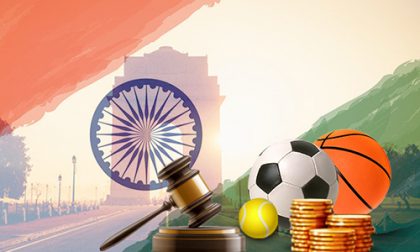Law Commission of India Recommends Gambling Legalization
This week, the Law Commission of India has released a report two years in the making that recommends the country legalize many forms of gambling, including Internet-based gambling. The report was mandated as a result of a cricket-based case involving match fixing, and it grew into a greater look at gambling as a whole in India, one of the world’ most populous countries.
India has long had a nationwide and highly ineffective ban on most forms of gambling, and part of the Law Commission’s recommendation is a generalized admission of defeat: “Since it is not possible to prevent these activities completely, effectively regulating them remains the only viable option [to dealing with the country’s widespread activity].” As one would expect, the report sounds the twin regulatory klaxons of slowing the flow of money to illegal, unregulated sites while also generating needed revenue for various government efforts.
 The Law Commission’s recommendations, however, propose a player-tracking system not found in Western countries as a possible way of preemptively dealing with problem-gambling behavior. Each player seeking to gamble on any future India-regulated site would have to register using their India-issued PAN (Permanent Account Number), thus guaranteeing formal government tracking of all activity.
The Law Commission’s recommendations, however, propose a player-tracking system not found in Western countries as a possible way of preemptively dealing with problem-gambling behavior. Each player seeking to gamble on any future India-regulated site would have to register using their India-issued PAN (Permanent Account Number), thus guaranteeing formal government tracking of all activity.
According to the Law Commission’s report, “Gambling and betting, if any, should be offered only by Indian licensed operators from India possessing valid licences granted by the game licensing authority. For participants, there must be a cap on the number of transactions an individual can indulge in these activities in a specific period, i.e., monthly, half-yearly or yearly. The nature of stakes should be restricted to money with a linkage to PAN card and Aadhaar card, and the betting amount should be prescribed by law, having an upper limit on the amount one an legally stake in a gamble, which may be on the basis of a deposit, winnings or losses.”
Even more interesting is that the India Law Commission recommends three separate categories for gambling consumers, defined as (a) “proper gambling”, (b) “small gambling”, and (c) no gambling allowed at all. That third category is designed to block from any regulated and tracked activity undertaken by Indian citizens who don’t report taxable income, which is designed to protect the poor (and make sure any form of government aid isn’t being used to gamble) and to also further curb underground gambling activities.
The “proper gambling” as recommended is a special high-stakes category stretching across all authorized gambling forms, though India’s gamblers will have to have reported income above an unspecified threshold in order to gamble for the higher stakes. All other gamblers who are in India’s tax system but aren’t deemed rich enough would have to settle for small-stakes gambling options.
An age limit (18 and up) is also included in the Law Commission’s recommendations. Problem-gambling warnings would be mandatory on all online offerings, as well as a “no porn” rule.
It remains uncertain as to the recommendations’ overall future. Socially conservative India may find a nationwide approval of gambling activities too much to embrace at once, even though some of India’s states have embraced certain forms of gambling under “skill-based” rules. That’s also contributed to several situations and a couple of court trials in India (including online poker), where activities deemed legal in one state have been ruled illegal in another, with fines and possible prison terms for the games’ operators and participants among the results.


















Legal betting right decision